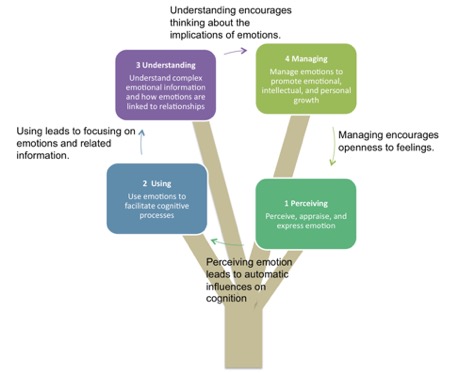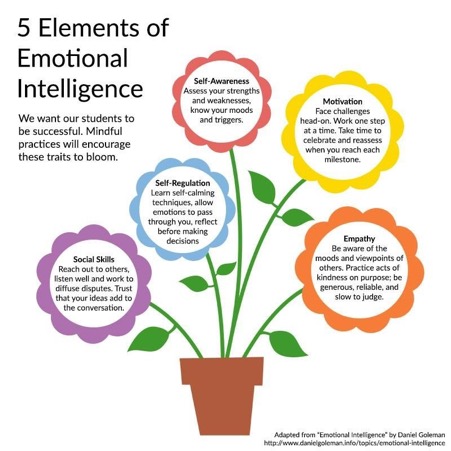Core tasks
What is Emotional Intelligence?
EQ short for Emotional Intelligence or emotional quotient. EQ describes an ability to monitor your own emotions as well as the emotions of others, to distinguish between and label different emotions correctly, and to use emotional information to guide your thinking and behaviour and influence that of others.
According to Salovey and Mayer, the founding fathers of EQ, there are 4 distinct dimensions or branches of EQ that form a hierarchy of emotional skills and abilities.
- Perceiving emotion
- Using emotions to facilitate thought
- Understanding emotions
- Managing emotions
Perceiving emotion is about being aware of and recognizing other people’s physical and psychological states, identifying emotions in other people.
Using emotions to facilitate thought is about involves redirecting and prioritizing your thinking based on the feelings associated with those thoughts, produce emotions that will facilitate better judgement and memory, capitalizing on mood changes so you can appreciate multiple points of view, and using emotional state to improve your problem-solving skills and creativity.
Understanding emotions is about understanding the relationships among various emotions, perceiving the causes and consequences of emotions, understanding complex feelings and contradictory states, and understanding the transitions among emotions.
The final dimension, managing emotions, refers to being open to both pleasant and unpleasant feelings; monitoring and reflecting on your emotions; engaging prolonging, or detaching from an emotional state; and managing the emotions both within yourself and in others.

According to Daniel Goleman, EQ also can be categories into 5 elements
Self-awareness is the main foundation building block for our EQ because we need to understand our own emotion before we even can self-regulate or have empathy about society.
Self-regulation is one step further-to have high EQ, we must not only be able to recognize our own emotions, we must also be able to appropriately express, regulate, and manage them.
People who are high in EQ are generally also high in intrinsic motivation; in other words, people high in EQ are motivated for internal reasons rather than to gain wealth, respect, fame, or other external rewards. Those with high EQ are motivated for their own personal reasons and work towards their own goals.
Empathy can be defined as the ability to understand how other people are feeling and recognize, on an intimate level, how you would feel in their shoes. It does not mean you sympathize, validate, or accept their behavior just that you can see things from their perspective and “feel” what they feel.
Finally, social skills are the last piece of the EQ puzzle; these skills are what allow people to interact socially with one another and to successfully navigate social situations. Those with high EQ generally have higher-than-average social skills and are able to effectively pursue their goals and get the outcomes they want when interacting with others.
